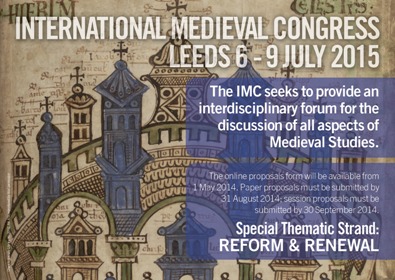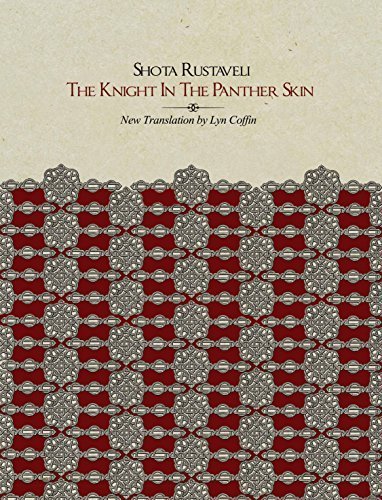

|
The Kartvelologist The Kartvelologist” is a bilingual (Georgian and English) peer-reviewed, academic journal, covering all spheres of Kartvelological scholarship. Along with introducing scholarly novelties in Georgian Studies, it aims at popularization of essays of Georgian researchers on the international level and diffusion of foreign Kartvelological scholarship in Georgian scholarly circles. “The Kartvelologist” issues both in printed and electronic form. In 1993-2009 it came out only in printed form (#1-15). The publisher is the “Centre for Kartvelian Studies” (TSU), financially supported by the “Fund of the Kartvelological School”. In 2011-2013 the journal is financed by Shota Rustaveli National Science Foundation. |
Modernism in Georgia – System Approach
Integration and Perception of Modernist Models in Georgian Creative Space periodically came on the agenda of our literature science but at different stages certain balanaced attitude appeared which was characterized by duality of the position (double standard): positive and negative perception of the problem. Positive tendency means the very fact that Avant-gardism was present in the 20th century Georgian culture and it was considered as the ready model “inserted” in Georgian Belles-lettres space. Negative viewpoint about this issue was more rough and radical. According to the latter, Avant-gardism in Georgia was considered as artificial step towards the demonstration of mannerism and originality. Some issues connected with the classification of Georgian Modernist schools and problem of its systemic nature are associated with such approaches as well as culturological and methodological unclearness. Modernism has different artistic images in different countries. Nevertheless, methodological scheme of sequence of Avant-gardism trends is as follows in all culturological publications: Symbolism, Impressionism, Expressionism, Futurism, Dadaism, Cubism, Surrealism (main trends are presented here). This strategy turned out to be different for Georgia. The mentioned methodological scheme is deranged in Georgian creative reality and it looks more or less like this: 1. Symbolism; 1913-1928 Theoretical analytics of Modernism in Georgia had explicitly brought to light the fact that it could be perceived as artistic creative method, i.e. literature of the method, which, unlike the European examples, had never acquired political loading and never claimed to replace the public-life style values.
keywords:Modernism, Georgian Literature Category: SCHOLARLY STUDIES Authors: Tamar Paichadze Chian Amphorae in Colchis
The present article reviews statistical analysis of Chian amphorae of the 7th-2nd cc. B.C. discovered in various sites of Colchis. In this period high quality wine was shipped in Chian amphorae in Colchis. Besides Chios there are amphorae of other Greek manufacturing centres (Lesbian, Samian, Thasian, Rhodian etc.), Against their background, the role of Chios in the trade with the centres of the Eastern Black Sea area is more evident. According to the presented information, it becomes clear that in the archaic period (end of the 7th c. B.C. – 6th c. B.C.) Chian imports quantitatively stood in the first place and with middle intensity were traced throughout the Antiquity; which emphasizes its importance in the trade relations of the period. keywords:Amphora, Stamp, Greek Colonisation, Chios, Colchis Category: SCHOLARLY STUDIES Authors: Christine Shavlakadze Two Kartvelological Sessions at the World Congress in Medieval Studies
According to the congress requirements, its sessions were allowed to work independently if each of them was presented by the members of different academic or research institutions as well as participants from different countries were especially welcomed. That is the reason why the organizers of the sessions invited famous Kartvelologists from Georgia and different foreign scholarly centers to be involved in the working process of these sessions. The moderator of the session Medieval Georgian Culture was Professor Elguja Khintibidze. The papers were presented by English Professor Donald Rayfield – Religious Tolerance and Intolerance in Medieval Georgian Literature by Gaga Shurghaia, a professor from Italy - The Ecclesiastical Reform of Vakhtang I Gorgasali (c. 440-502): King of Kartli and also PH.D. student from Tbilisi State University Irma Makaradze - Revival of the Oriental Plot in English Dramaturgy: The Trace of The Man in the Panther Skin in 17th Century England.
keywords:World Congress, Georgian/Kartvelian Studies Category: CHRONICLE OF EVENTS Authors: Irma Makaradze XII International St. Grigol Peradze Conference of Caucasian Studies
On December 4-6, 2014 the St. Grigol Peradze XII International Conference of Caucasian studies was held at the University of Warsaw. The conference was dedicated to the 825-year anniversary of Shota Rustaveli's creative work. Such conferences are held in Warsaw every other year and are organised by Professor David Kolbaia of Warsaw University. The main goal of the conference was to promote the role of Georgian culture and history in the process of the development of the world civilization, as well as the promotion of Georgian cultural heritage, religious and philosophical values. This year the conference was, for the first time, held under the patronage of Georgian and Polish presidents this year. The Caucasian session was opened by the Georgian President. keywords:Warsaw, International Conference of Caucasian Studies Category: CHRONICLE OF EVENTS Authors: Tamta Grigolia
The New Translation of The Knight in the Panther Skin
At the presentation of the book Lyn Coffin was introduced to the public by Prof. Darejan Tvaltvadze, Dean of the Faculty of Humanities, at Tbilisi State University, who thanked the translators for the new English translation of the greatest Georgian poem. Academician Elguja Khintibidze, Head of the Chair of Old Georgian Literature of Tbilisi State University in his welcome speech addressed the translator and noted that this translation is valuable because it is a fact that it was published recently in the 21th Century whereas previous translations were published in the 20th century. keywords:The Knight in the Panther Skin, Lyn Coffin, Shota Rustaveli Category: GEORGIAN LITERATURE IN ENGLISH TRANSLATION Authors: Khatia Mikaberidze |
Categories Journal Archive |



 The World Congress in Medieval Studies took place in Leeds (UK) from July 5-9, 2015. This World Congress is traditionally of worldwide importance in Europe. Over 2,400 delegates from different academic or research institutions attended the 22nd annual International Medieval Congress at the University of Leeds this year. It was the first time when those two Kartvelological sessions worked at the World Congress. It should also be noted that both Kartvelological sections, at the initiative of foreign colleagues, were organized by Professor Elguja Khintibidze.
The World Congress in Medieval Studies took place in Leeds (UK) from July 5-9, 2015. This World Congress is traditionally of worldwide importance in Europe. Over 2,400 delegates from different academic or research institutions attended the 22nd annual International Medieval Congress at the University of Leeds this year. It was the first time when those two Kartvelological sessions worked at the World Congress. It should also be noted that both Kartvelological sections, at the initiative of foreign colleagues, were organized by Professor Elguja Khintibidze. On 13th of October 2015 Ivane Javakhishvili Tbilisi State University warmly welcomed Lyn Coffin, a new translator of The Knight in the Panther Skin from Georgian into English. The American poet, playwright and translator published the fifth English translation of The Knight in the Panther Skin in September 2015. The new translation was prepared by the publishing house “Poezia”. Ms. Coffin started to work on the translation of the poem in 2012 together with Professor Dodona Kiziria, who made a word for word translation of the poem. This translation was based on two editions: one, prepared by the Commission for stating the text of MPS and published in 1965 and the other, the school edition by Prof. Nodar Natadze.
On 13th of October 2015 Ivane Javakhishvili Tbilisi State University warmly welcomed Lyn Coffin, a new translator of The Knight in the Panther Skin from Georgian into English. The American poet, playwright and translator published the fifth English translation of The Knight in the Panther Skin in September 2015. The new translation was prepared by the publishing house “Poezia”. Ms. Coffin started to work on the translation of the poem in 2012 together with Professor Dodona Kiziria, who made a word for word translation of the poem. This translation was based on two editions: one, prepared by the Commission for stating the text of MPS and published in 1965 and the other, the school edition by Prof. Nodar Natadze.